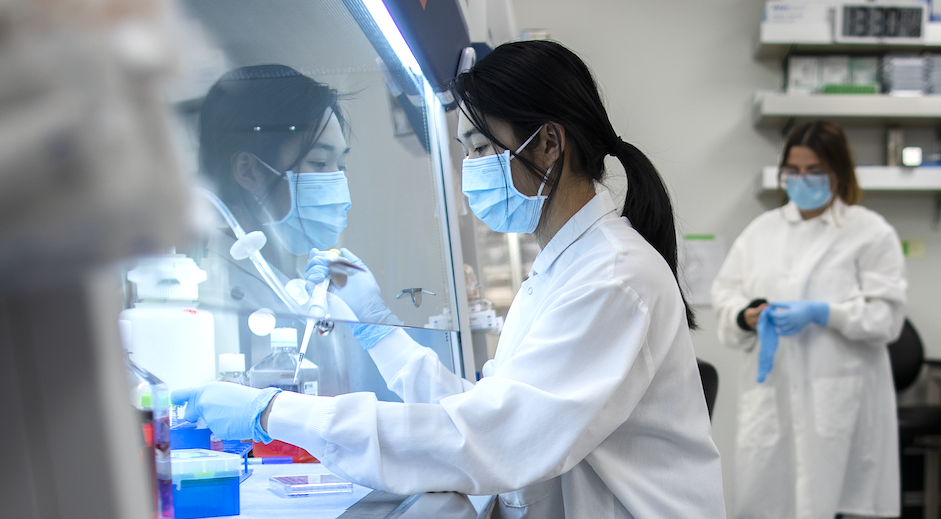LA JOLLA—Scientists and staff at La Jolla Institute for Immunology (LJI) have gotten used to spitting in tubes for the Institute’s internal COVID-19 Screening Program. In fact, LJI employees submit an average 283 tubes for COVID-19 testing each week—the safety protocol has become a way of life.
Behind the scenes, these test tubes represent something amazing: the hard work and creative thinking of the LJI Next Generation Sequencing Core staff. When the COVID-19 pandemic shut down laboratories around the world, this team was tasked with developing a rapid, saliva-based screen to get LJI labs back up and running safely.
Now their work is getting national attention. The LJI team has been named a finalist in the XPRIZE Rapid Covid Testing competition. With this, the team is in the running to receive one of five $500,000 prizes to further their work and help make their testing protocol widely available.
“We are all super excited,” says group leader Suzanne Alarcon, manager of the LJI Next Generation Sequencing Core. “We want to get our protocol out there because it’s reliable, it’s quick and it doesn’t require extremely specialized equipment or technical skills.
Alarcon started at LJI in late April, shortly after the Institute went into locked-down “Maintenance Mode.” Despite the difficulty working in isolation and with limited access to the Institute, Alarcon quickly got an in-house COVID-19 screening program up and running. She was joined in this effort by the LJI Next Generation Sequencing staff and XPRIZE teammates Hannah Dose, Arturo Hernandez and Kyle Tanguay.
“The team worked so hard,” says Stephen Wilson, Ph.D., executive vice president and chief operating officer at LJI. “This was an everyday, all-day effort to go from concept to assay to a system we could actually use.”
When it was first conceived this spring, it was decided that that assay would use only a small saliva sample, rather than a deep poke for a nasal swab or needle to draw blood. The approach paid off. Once collected, the sample is then subject to a one-step RT-qPCR assay to detect genetic material from SARS-CoV-2. The basic strategy is the same as the Centers for Disease Control’s early SARS-CoV-2 test, but the LJI team has worked to make it faster, safer and cheaper.
Alarcon and her teammates use heat to inactivate the virus (before they uncap the sample) and a detergent to process the sample, eliminating the expensive and time-consuming need to extract or purify RNA from a raw sample. Because the reaction to detect the virus is done with only a low volume, the scientists can perform high-throughput screening at a low cost. The whole protocol can be carried out in less than a day and costs $2.00.
“Another advantage is that the test doesn’t rely on exotic or hard-to-get supplies,” says Wilson. “We knew the protocol needed to be so simple that anyone who follows the directions could get basic supplies and do it—so that more labs can have the confidence to do this sort of thing.”
As LJI employees have participated in screening, their results have been independently validated by clinical testing to show that the LJI method is accurate.
The collection materials are distributed to LJI employees as a simple do-it-yourself kit. Employees then drop off the kit for rapid screening at the Institute. So far, the LJI protocol has proven easy for others to adopt. Wilson and Alarcon have advised companies and non-profits who want to implement the testing themselves. Alarcon imagines the same protocol could also work well for COVID-19 testing in schools, where collecting saliva could be an easier option than doing a nasal swab or blood test for kids.
“This aligns with LJI’s mission of ‘Life Without Disease,’” says Alarcon. “We want to get this into as many hands as possible.”
As XPRIZE finalists, Alarcon, Dose, Hernandez and Tanguay will have their test further validated in a real-world clinical setting. The final winners of the XPRIZE will then be announced Feb 2021, with the winning teams receiving $1 million each.




